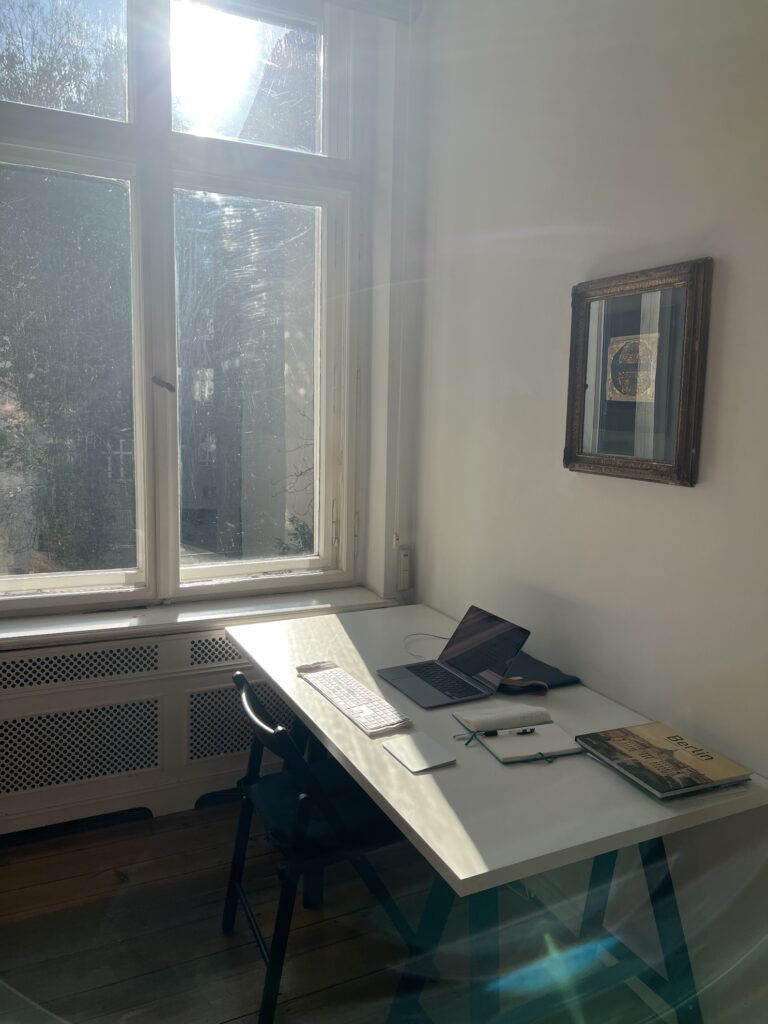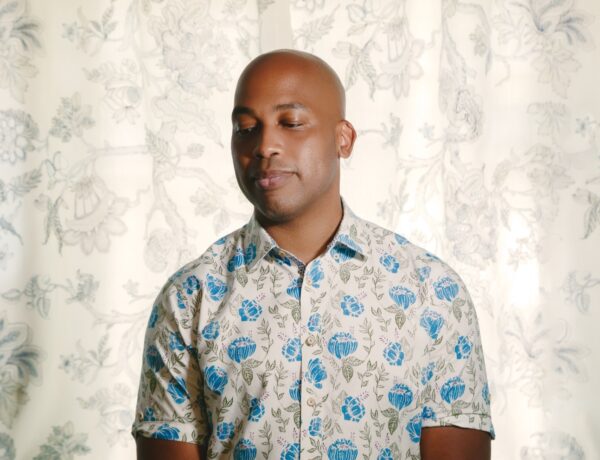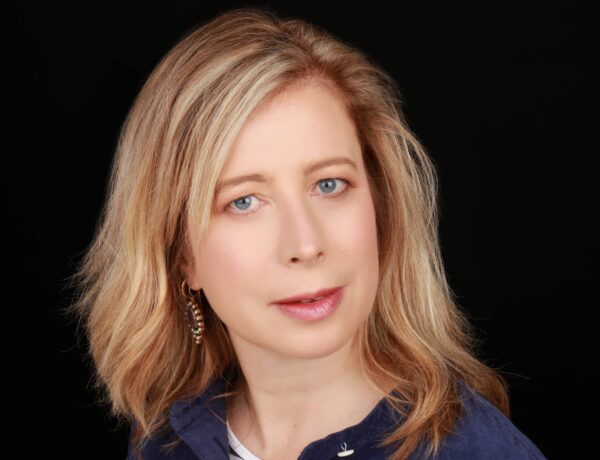Rachel Dodes is a freelance culture writer. She’s a regular contributor to Vanity Fair, and her work has also appeared in Town & Country, Esquire, The New York Times, The Wall Street Journal, Buzzfeed among other publications.
Starting in 2017, she co-hosted a weekly independent news/comedy podcast called “Nope,” until the news became so unfunny she had to go on hiatus. Her first novel, The Memo—co-written with her friend Lauren Mechling—will be published by Harper Perennial in 2024.
Dodes previously was a staff writer at The Wall Street Journal where she covered the fashion and film industries. She graduated from Cornell University and holds a Master’s degree from the London School of Economics. She recently moved to Berlin, where she lives with her husband, son and dog.
Each week, we publish a new daily writing routine from a famous author. Subscribe to our newsletter so you don’t miss out!
Hi Rachel, welcome to Famous Writing Routines, great to have you here with us today! Can you tell us about your first novel, The Memo, and how you came to co-write it with Lauren Mechling?
The Memo, which will be published by Harper Perennial in Summer 2024, is a novel about friendship and the multiverse. It envisions a world where there are two categories of people: those who got the memo–yes, an actual memo that tells them what to do–and those who didn’t.
Members of the latter group, to which our hapless protagonist belongs, are doomed to flail around making suboptimal decisions. How I came to co-write a novel with my good friend Lauren Mechling is a long and complicated story. Suffice it to say we had been trying to collaborate on a project for a long time, and once the pandemic hit, we finally had time to focus on it.
Can you share with us your journey from studying at Cornell University and earning a Master’s degree at the London School of Economics to becoming a freelance writer?
Like many people, I wasn’t sure what I wanted to do after college. (I didn’t have a memo, unfortunately.) I graduated with a degree in biology and, somewhere between Organic Chemistry and Genetics Lab, had lost interest in pursuing medical school.
After I graduated, I was lucky enough to get a paid internship at Bloomberg covering the healthcare industry. That’s how I got into business journalism, which I loved. But I wanted to learn more about business/economics, so I applied to LSE and moved to London.
When I returned to New York after getting my master’s, I got a job writing about collateralized debt obligations, the derivatives that Warren Buffett called “financial weapons of mass destruction,” which tanked the global economy in 2008.
I then got hired by the Wall Street Journal, where I covered luxury goods and, then, moved on to cover the film industry. It was a dream job but I left after almost 10 years because I was captivated with how social media startups were upending traditional media companies (and let’s face it, the prospect of making more money was alluring.) So I worked for Twitter for a few years overseeing the company’s partnerships with Hollywood studios. I was laid off right before the 2016 election, and decided it was a good moment to get back into writing.
How does living in Berlin inspire your writing and creative process?
Berlin, where we moved in August after 20 years in New York, is such a beautiful, creative, diverse city. Being in a new place is always inspiring because everything is fresh and different. The brain responds in a different way, really taking in information and remembering details more clearly.
I’ve been enjoying meeting new people, traveling, learning a new language, trying new restaurants–all of it fuels my creative process. And it’s been wonderful to spend more quality time with my sister, who has lived here for the past 10 years.
You have been a regular contributor to Vanity Fair and your work has appeared in various other publications. What do you enjoy about writing for different audiences and platforms?
After working for so long as a news reporter (and keeping my opinions to myself in the interest of objectivity) it really is a joy and an honor to have the chance to express a point of view in magazines I’ve been reading for my entire life.
Over the years, I’ve developed strong relationships with certain editors who like my voice and know exactly which topics are up my alley. This, I love for many reasons, not the least of which is that I don’t have to pitch as much as I used to.
What does a typical writing day look like for you?
My son goes to school early – he leaves at 7am, and I find I’m more creative in the morning. So I typically will shower, have my coffee and write for at least an hour before taking a break to have a snack, do yoga and/or go for a run on my laufband (German for treadmill). I am constitutionally unable to be a productive writer for more than a few hours in a given day, but I can read, do research and jot down notes that will help set me up for success the next day.
Discover the daily writing habits of authors like Stephen King, Neil Gaiman, and Gillian Flynn with Famous Writing Routines Vol. 1 and learn how to take your writing to the next level. Grab your copy today!
Do you have any rituals or habits that you follow before starting your writing process?
I follow Jerry Seinfeld’s simple method, which is that if you have to write, you cannot do anything else. You can sit there at your desk and stare at the computer, but during your designated writing time you cannot devote your attention to any other activities. I set a timer on my Apple watch–usually 90 minutes–and when I am done with that “sprint” I can have a reward, a coffee or a snack from the bakery down the street, or a 10 minute doom-scrolling sesh on Twitter. If I need to get into the zone I will put on noise-cancelling headphones and listen to music: my go-tos for focused writing are Tangerine Dream or the soundtrack to the film The Hours.
Do you have any tools or methods that you use to help you stay organized and on track with your writing?
The Bullet Journal method has really helped me stay focused on tasks that need to be completed and map out what I need to do today, this week and this month, a mix of long- and short-term objectives. I make a lot of lists and index those lists so I know where to find them if I ever get lost.
If you could have a conversation with any author throughout history about their writing routine and creative process, who would that person be?
Toni Morrison, Joan Didion, Patti Smith, Nora Ephron… There are too many! I love reading about writers’ creative processes. Haruki Murikami’s What I Talk About When I Talk About Running is such an interesting meditation on the interplay between physical activity and creativity. And Stephen King’s On Writing is one of the best books I’ve ever read in any genre. I took Margaret Atwood’s Masterclass so I know a bit about her process. But I guess if I could have a conversation with one writer throughout history, I’d love to talk to Virginia Woolf about her routine and creative process.
I’d love to know about the books you’re reading at the moment. What have been some of your favourite reads?
Right now, I am finishing reading a beautiful book of short stories called The Consequences by Manuel Muñoz. I was fortunate enough to take Manuel’s creative writing class during my senior year of college, and his style continues to inspire awe. In a world where so much writing is overwrought, his prose is so refreshingly natural, subtle and understated, making his stories’ conclusions hit like a gut punch.
I have also really enjoyed new novels like Tomorrow and Tomorrow and Tomorrow by Gabrielle Zevin, which Lauren sent to me because she loved it so much, and Olga Dies Dreaming by Xochitl Gonzalez, which everybody I know has already read despite the fact that it only came out a year ago. I loved The Netanyahus by Joshua Cohen—a truly bonkers book based on a somewhat true story.
What does your current writing workspace look like?
It’s basically just a computer on a desk with a notebook next to it. I need to clear all clutter before I can write, or else I am distracted by the need to clean up. I am currently renting a furnished apartment in Berlin and the antique desk in the designated office area is lovely but too chaotic for me, with all its nooks and crannies and uneven surfaces.
Plus, my husband uses that space for his late-night Zoom meetings for work–he’s operating on New York time–so his stuff is everywhere. I have carved out my own little corner with a plain, utilitarian desk I set up for my laptop (with a folding chair that could probably be a bit more comfortable).
This simple workspace is located next to a big old window overlooking a courtyard, and it’s so bright I sometimes have to close the shades to avoid the glare of the sun. I live in the middle of Berlin but this place is serene and quiet. It’s really such a perfect space, I am feeling like maybe I should be more productive? Perhaps I need a better chair. Yes, that’s it. A better chair will solve everything.

Affiliate disclaimer: Some links on this website are affiliate links. We may earn a small commission if you make a purchase through these links, but only promote products we truly believe in. We disclose affiliate links and give honest reviews.



No Comments